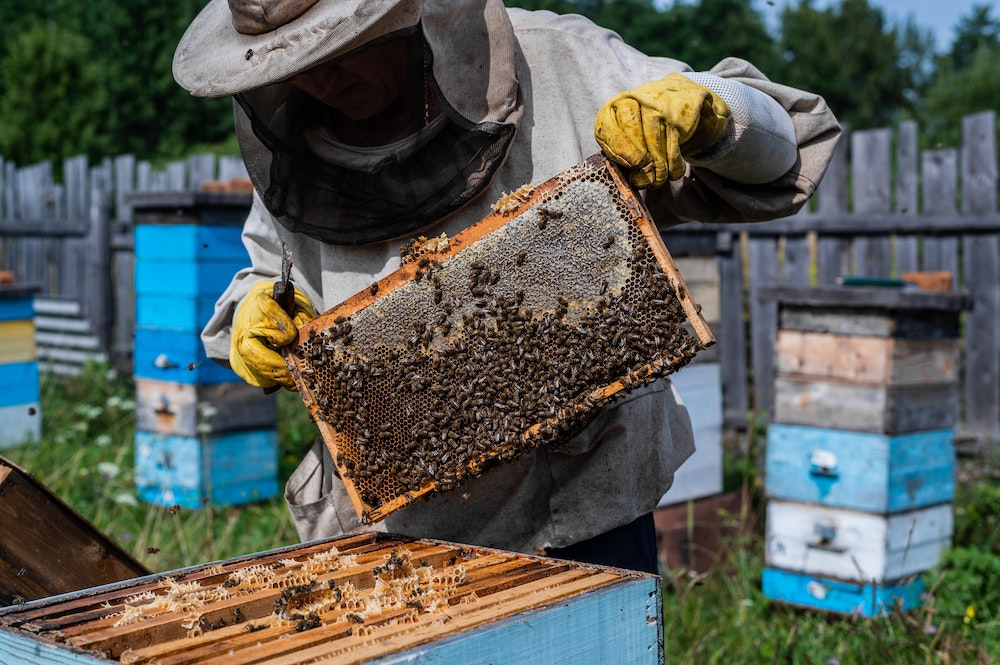What Are the Best Practices for Sustainable Beekeeping in the UK?

Beekeeping is both an art and science, with a rich history that spans back thousands of years. Today, it remains a vital element of our ecosystem and economy, particularly in the UK, where the thriving practice of beekeeping contributes significantly to both local food chains and the broader environment. As the challenges facing our environment increase, be it from climate change or the widespread use of pesticides, the importance of sustainable beekeeping has never been more clear. But what exactly does sustainable beekeeping entail and how can it be best practiced? This article seeks to answer these questions, providing a comprehensive overview of the best practices for sustainable beekeeping in the UK.
Understanding Bees: The Fundamentals of Beekeeping
Before delving into the intricacies of sustainable beekeeping, it is vital to first understand the basics of bees and beekeeping. Despite their small size, bees play a monumental role in our ecosystem. They are nature’s most industrious pollinators and are responsible for pollinating approximately one third of the food we eat.
A lire également : Can Vertical Aquaponic Farms Address Urban Food Deserts in the UK?
At the heart of every colony lies the queen bee, whose sole purpose is to lay eggs and perpetuate the colony. Worker bees, who are all female, perform the daily tasks that keep the hive functioning while the male bees, or drones, are there solely for mating with the queen. A healthy hive requires all these elements working in harmony.
Beekeeping, or apiculture, is the art of maintaining hives to harvest honey and other products, such as beeswax and royal jelly. The role of beekeepers extends beyond harvesting though, as they also have the responsibility of ensuring the health and well-being of their colonies.
En parallèle : What Are the Latest Trends in Smart Home Appliances for UK Consumers?
The Challenges Facing Beekeepers: Varroa and Colony Collapse
Beekeepers today face a number of challenges, the most significant of which is the Varroa mite. These tiny parasites attach themselves to bees and their larvae, spreading diseases that can devastate entire colonies. They have been a major factor in Colony Collapse Disorder (CCD), a phenomenon where worker bees abandon the hive, leaving the queen and a handful of nurse bees to care for the remaining immature bees. This inevitably leads to the collapse of the colony.
Combatting these threats requires vigilance and proactive measures from beekeepers. Regular inspections of hives for signs of infestation, such as deformed bees or a sudden decrease in the colony’s population, are essential. In the event of an infestation, treatments such as organic acids, essential oils or synthetic pesticides can be used, although the latter should be a last resort due to their potential harmful effects on bees.
Sustainable Beekeeping: Best Practices and Techniques
Sustainable beekeeping goes beyond regular maintenance and treatments for pests. It encompasses a holistic approach that prioritizes the health of the bees and the environment they inhabit.
The first step to sustainable beekeeping is choosing the right type of hive. Traditional Langstroth hives, while efficient for honey production, can be detrimental to bees’ natural behaviors and lifespan. More sustainable alternatives include top bar hives or Warre hives, which allow bees to build their own comb, mimicking their natural habitats in tree cavities.
Adopting organic and natural beekeeping practices is another crucial component of sustainability. This means avoiding synthetic chemicals and antibiotics that could harm bees’ health. Instead, using natural substances like formic acid or oxalic acid to control varroa mites can be an effective and safer alternative.
Furthermore, supporting bees’ natural behaviors, such as swarming, is a key element of sustainable beekeeping. While it can result in a temporary loss of honey production, swarming is a natural method of colony reproduction and a sign of a healthy hive.
The Importance of Local Sourcing and Education
Local sourcing plays a significant role in sustainable beekeeping. Importing bees can expose local colonies to diseases and parasites, threatening their survival. By sourcing bees and queens locally, beekeepers can help maintain the genetic diversity and resilience of local bee populations.
Education is equally as important in the journey towards sustainable beekeeping. This includes educating oneself about the latest sustainable beekeeping practices, but also spreading awareness in the wider community. By informing others about the importance of bees and the challenges they face, beekeepers can help foster a more bee-friendly environment.
Conclusion: What the Future Holds for Sustainable Beekeeping
As the threats to bees and the environment continue to grow, the importance of sustainable beekeeping cannot be overstated. Through embracing sustainable practices, beekeepers can ensure the health and longevity of their colonies while also contributing to a healthier planet. The future of beekeeping lies in our commitment to sustainability and the actions we take today will shape the world of tomorrow.
The Role of Urban Beekeeping and Queen Rearing
Urban beekeeping contributes significantly to the sustainability of bee populations in the UK. This form of beekeeping involves keeping bees in city environments, such as gardens, rooftops, balconies, or communal spaces. A key advantage of urban beekeeping is the diversity of plants in city landscapes, which can provide bees with a rich and varied source of nectar and pollen.
However, urban beekeepers need to be especially cautious about the challenges their bees may face, such as exposure to pesticides from gardens or city parks. Ensuring that your bees have access to clean water and are protected from extremes of weather is crucial in an urban setting.
In addition to keeping bees, a sustainable beekeeping practice also involves queen rearing. Bees naturally create queen cells to raise new queens. As a beekeeper, you can encourage and manage this process, contributing to the maintainance and growth of local honey bee populations. Natural queen rearing ensures that the colonies have queens that are acclimated to their local environment and are genetically diverse. This practice also prevents the need for imported queens, which can introduce foreign diseases and parasites.
Tree Beekeeping: A Bee-Centred Approach
Tree beekeeping, or tree hive beekeeping, is an ancient method of beekeeping that is gaining renewed attention for its potential contributions to sustainable beekeeping. This method involves keeping bees in hollowed-out tree trunks, mimicking the bees’ natural habitats in the wild. Tree beekeeping is a bee-centred approach that respects the natural behaviours and needs of bees, promoting their health and well-being.
Tree beekeeping allows bees to build their own comb and manage their colony structure, leading to stronger, more resilient colonies. The hive is often situated high up in a tree, which offers additional protection to the bees from predators and environmental elements.
However, tree beekeeping also poses challenges. The height of the hive can make it difficult for bee farmers to inspect and manage. Honey production may also be lower as bees are given the freedom to manage their own resources. Nevertheless, the long-term benefits to bee health and the overall sustainability of this approach make it a practice worth considering for those committed to sustainable beekeeping.
Conclusion: The Path Towards a Sustainable Future
Sustainable beekeeping, with its focus on the health and well-being of honey bees, is a critical path towards a secure future for bees and the ecosystems they support. By adopting practices such as natural beekeeping, tree hive beekeeping, and queen rearing, and by supporting urban environments conducive to bee keeping, we can help bolster bee populations and their resilience.
Education remains a key component of this journey. By spreading awareness about the importance of bees and the challenges they face, we can foster a more bee-friendly environment.
As we look to the future, every action we take in support of sustainable beekeeping contributes to the health and diversity of our bee colonies, and to the broader health of our planet. The future of sustainable beekeeping lies in our hands and the choices we make today will shape the world of tomorrow. Let’s make that future a bright one, for our honey bees and for us all.
